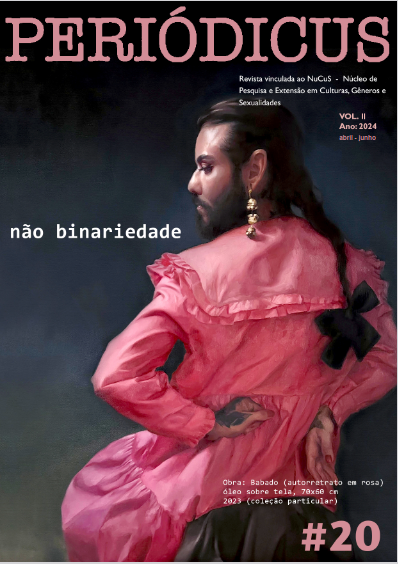Peripheralized youth experiences on gender and race
problematizations based on the theoretical contributions of Lélia Gonzalez
DOI:
https://doi.org/10.9771/peri.v2i20.57606Abstract
This article aims to discuss, based on the contributions of Lélia Gonzalez to the field of social psychology, the intersections between gender and race in the experience of young black individuals in peripheral contexts in Fortaleza. It starts from a qualitative approach, exploring micropolitical strategies to understand the impacts of gender and racial coloniality on young blacks in peripheral areas of Fortaleza. The narratives highlight gender asymmetries and unequal conditions faced by young blacks in racialized contexts. The article emphasizes the importance of debating racial and gender inequalities, denaturalizing instruments of domination present in the Brazilian social structure. The research proposes the production of narratives challenging colonial modes of domination, emphasizing the need for critical epistemologies of coloniality in psychology to strengthen anti-racist and anti-sexist struggles.
Downloads
Downloads
Published
How to Cite
Issue
Section
License
Copyright (c) 2024 Aldemar Ferreira da Costa, João Paulo Pereira Barros, Laisa Forte Cavalcante, Livia Lima Gurgel

This work is licensed under a Creative Commons Attribution-NonCommercial 4.0 International License.
Authors who publish in this journal agree to the following terms:
Authors retain copyright and grant the journal the right of first publication, with the work simultaneously licensed under a Creative Commons Attribution Noncommercial License that allows the work to be shared with acknowledgment of authorship and initial publication in this journal, but prohibits commercial use.
Authors are authorized to enter into separate additional contracts for non-exclusive distribution of the version of the work published in this journal (e.g., publishing in an institutional repository or as a book chapter), with acknowledgment of authorship and initial publication in this journal.
Authors are permitted and encouraged to publish and distribute their work online (e.g., in institutional repositories or on their personal website) at any point before or during the editorial process, as this can generate productive changes and increase the impact and citation of the published work (see The Effect of Open Access).








